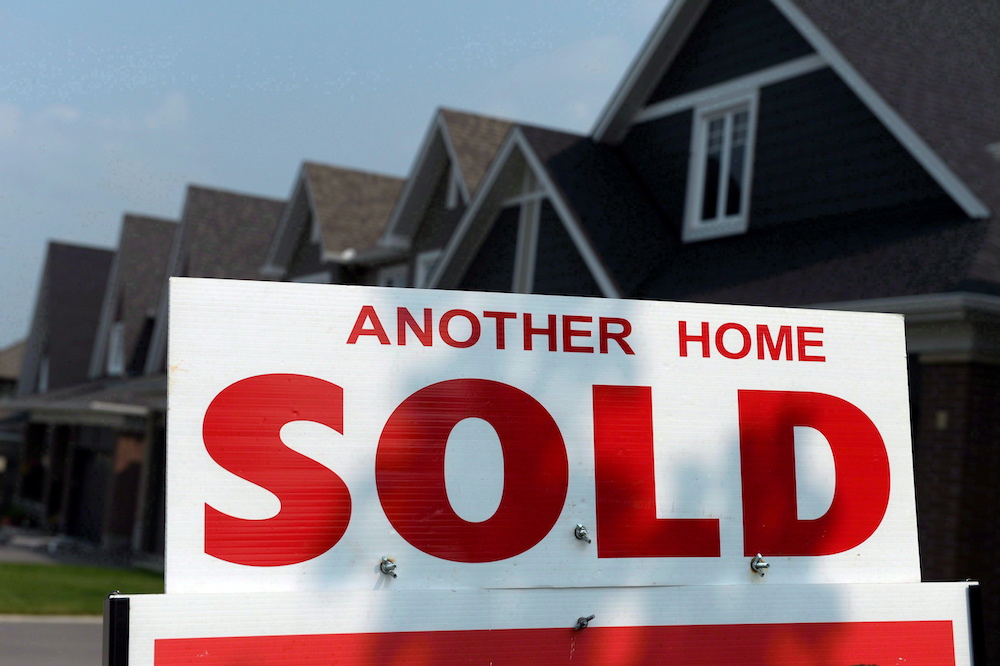Home buyers looking in Ontario can expect competition to remain high despite data from the Canadian Real Estate Association (CREA) suggesting a cooling off of the housing market, says the head of the Hamilton-area realtors association.

CREA’s latest report revealed a drop in home sales and prices in April pointing to a potential softening in Canada’s housing market amid Bank of Canada interest rate hikes dealing with inflation.
The president of the Realtors Association of Hamilton-Burlington (RAHB) says buyers “need to be realistic” and temper expectations in the local market which he figures will remain “healthy” when it comes to cost.
“The market is slowing, but it’s by no means dead,” RAHB President Lou Piriano told 900 CHML’s Bill Kelly Show.
“It’s a mixed bag, with some properties still getting multiple offers and some sitting on the market.”
CREA found the number of homes sold dropped by 25.7 per cent to 54,894 last month from 73,907 in April 2021, when the country set a record for the month.
On a month-over-month basis, sales in April were down 12.6 per cent compared with March, but still ranked as the third-highest April sales figure, just behind 2021 and 2016.
The association attributed much of the slowdown to fixed mortgage rates, which have been on the rise since 2021, but have been more impactful in recent months.
“For buyers, this slowdown could mean more time to consider options in the market,” said Jill Oudil, CREA’s chair, in a news release. “For sellers, it could necessitate a return to more traditional marketing strategies.”
The data had some economists with the country’s major financial institutions predicting as much as double-digit drops in the home price index.

Get breaking National news
BMO Capital Markets senior analyst Robert Kavcic, who suggested a potential drop of 10 to 20 per cent at some point in 2022, went as far as to say “demand fever” in Canadian housing has “broken with a nudge in interest rates.”
Piriano says the CREA stats by no means suggest buyers will face “bargain basement prices” in the Greater Toronto and Hamilton Area (GTHA), just more moderated costs.
“I think we’re a bit premature in predicting these types of price drops, especially as all real estate is local,” Piriano remarked.
“That’s a very broad, sweeping statement that covers … the entire country by the sound of it.”
In fact, a new report by Generation Squeeze found Housing affordability in Ontario has eroded at a rate not seen in half a century over the course of the COVID-19 pandemic, with home prices skyrocketed by 44 per cent across Doug Ford’s leadership.
The study says with current home prices, a new homebuyer would have to work full-time for nearly 22 years to save up enough money for a 20 per cent down payment on a home — up from 15 years in late 2019.
The average Greater Toronto Area home sold for $910,290 in February 2020, before the pandemic’s first lockdown. It climbed to above $1.2 million in April 2022, according to Toronto Regional Real Estate Board data.
In the Hamilton-Burlington market the average residential property was $646,667, moving to $1,013,081 in April.
With Ontarians heading to the polls in less than 30 days, all three of the major contenders in the provincial race have committed to build 1.5 million homes over the next decade through varied combinations of starters, affordable units and rentals.
The founder of Generation Squeeze – which studies housing affordability and standard of living across Canada – suggests the province does have some supply issues but really needs a look at policies around zoning land.
Paul Kershaw, an associate professor at the University of British Columbia, says their recent affordability study discovered that two thirds of Ontarians just want their politicians to find a way to “stall” home prices.
“We have to start by actually having a clear goal,” Kershaw told 900 CHML’s Hamilton Today. “Do we want housing to be a place to call home or do we want it to be an investment strategy? We can’t have both.”
Piriano says cost and supply problems are systemic with successive governments having “no effect on solutions” and that better planning is needed at all levels of government.
He says rising interest rates have little effect on those with lots of investment money and Ottawa’s stress test actually made it tougher for younger generations to get into the home ownership game.
“If you were a young couple five years ago and you couldn’t quite qualify for a $500,000 house. Guess what? You’re not qualifying at all now, five years later,” Piriano said.
— With files from the Canadian Press and Sean Boynton












Comments